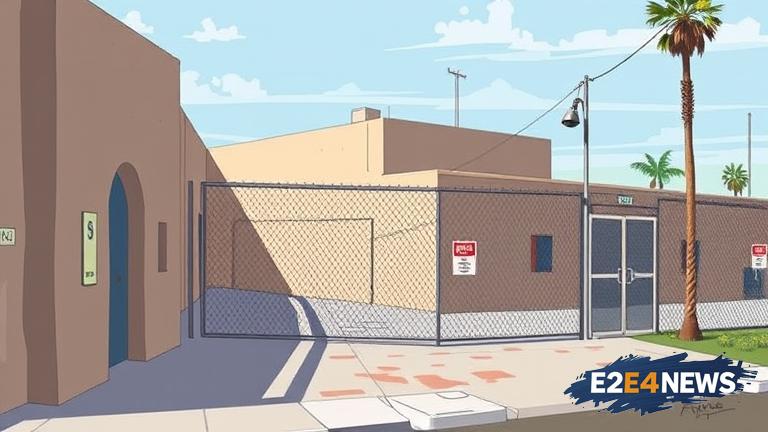In a landmark decision, a judge has given the green light to a partial settlement that will bring about substantial changes to San Diego County jails. The settlement, which is the result of a long-standing lawsuit, mandates the implementation of sweeping Americans with Disabilities Act (ADA) reforms. These reforms are designed to enhance accessibility and provide better accommodations for inmates with disabilities. The lawsuit, filed on behalf of inmates with disabilities, alleged that the county’s jails failed to provide adequate access to facilities, programs, and services. The plaintiffs claimed that the lack of accessibility and accommodations resulted in unequal treatment and discrimination. The partial settlement marks a significant step towards addressing these concerns and ensuring that inmates with disabilities receive the same opportunities and treatment as their non-disabled peers. Under the terms of the settlement, the county will be required to conduct a comprehensive assessment of its jails to identify areas that require improvement. This assessment will focus on identifying physical barriers, such as inaccessible cells, bathrooms, and recreational areas, as well as programmatic barriers, including inadequate medical care and counseling services. The county will then be required to develop a plan to address these barriers and implement the necessary reforms. The reforms will include the installation of accessible cells, the provision of accessible medical equipment, and the hiring of additional staff to provide support services to inmates with disabilities. The settlement also requires the county to establish a system for tracking and responding to complaints from inmates with disabilities. This system will ensure that complaints are addressed in a timely and effective manner, and that inmates receive the accommodations they need to participate fully in jail programs and services. The implementation of these reforms is expected to have a significant impact on the lives of inmates with disabilities, improving their access to education, employment, and healthcare opportunities. The settlement is also expected to serve as a model for other jurisdictions, demonstrating the importance of providing accessible and accommodating environments for individuals with disabilities. The judge’s approval of the partial settlement is a major victory for the plaintiffs and for disability rights advocates, who have been pushing for these reforms for years. The settlement is a testament to the power of advocacy and the importance of ensuring that individuals with disabilities have equal access to opportunities and services. The county has agreed to work with disability rights experts to ensure that the reforms are implemented effectively and that the needs of inmates with disabilities are met. The implementation of the reforms will be monitored by the court, which will receive regular progress reports from the county. The court will also have the authority to enforce the terms of the settlement, ensuring that the county complies with its obligations. The partial settlement is a significant step towards creating a more accessible and inclusive environment in San Diego County jails. It demonstrates a commitment to upholding the rights of individuals with disabilities and ensuring that they have equal access to opportunities and services. The settlement is expected to have far-reaching implications, not only for San Diego County but also for other jurisdictions that are grappling with similar issues. As the county moves forward with implementing the reforms, it is likely that other jurisdictions will take notice and follow suit. The settlement is a major milestone in the ongoing effort to promote disability rights and ensure that individuals with disabilities are treated with dignity and respect. It is a reminder that accessibility and accommodations are not only legal requirements but also essential components of creating a just and equitable society. The implementation of the reforms will require significant resources and effort, but the end result will be a more accessible and inclusive environment that benefits not only inmates with disabilities but also the broader community. The settlement is a powerful example of what can be achieved through advocacy and litigation, and it serves as a reminder of the importance of protecting the rights of individuals with disabilities.
